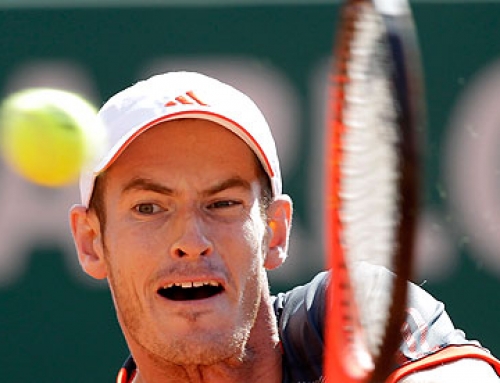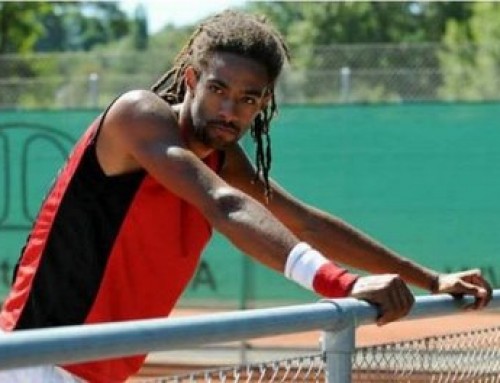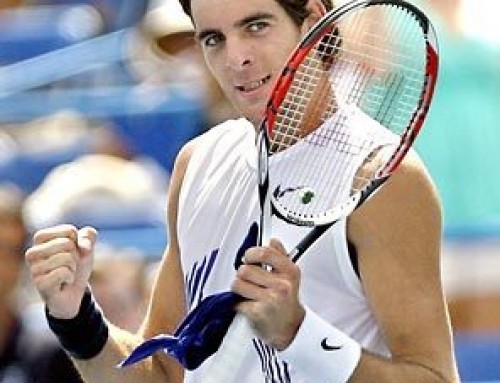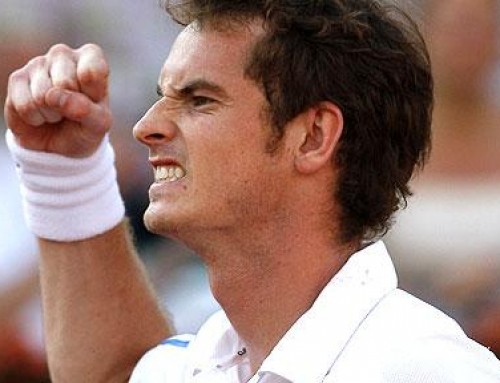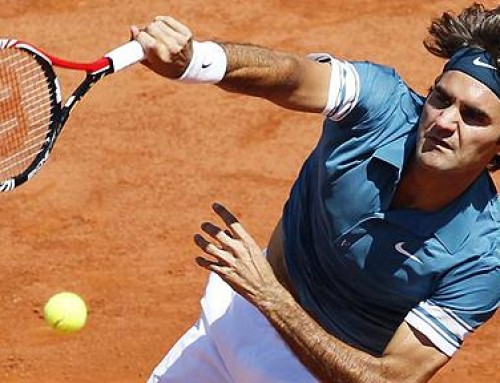It’s the dream of many players to reach number one in the world, to be the best at something. Tennis, fortunately, has a system in place that allows players to achieve this goal (say, unlike being the best cook in the world).
But what does it take to be the best in the world? If you consider some of the words used to describe the top players–confident, brash, arrogant–they don’t sound like virtues, at least, to a non-competitive world that values cooperation and friendliness. Everyone believes that Federer, Nadal, Murray, and Djokovic are as certain of their abilities as Serena was when she said she felt like number 1. They understand the public doesn’t want to here that kind of bragging, so they go into damage control.
This is a real challenge. Players often need to believe in themselves strongly, possibly even arrogantly. Go watch some junior tournaments, and you’ll see that seething smugness of some players that know they are the best, even if they aren’t. Occasionally, you might see a few folks that break the mold, the nice guys of the tour like Sam Querrey, who are certainly competitive, but aren’t outwardly smug.
Players that are barely out of their teens are expected to show civility and class. Some are naturally gracious. Others require a bit more advice from their agents, from their friends. Thus, Andy Murray, the patriotic Scot, didn’t have the traditional British grace of Tim Henman who said all the right things. Murray, by contrast, seemed angrier, more brusque, more American. It’s perhaps not surprising that Murray’s tennis hero was Andre Agassi, that his favorite TV shows and comedians are American. His accent is often a bit more American. Americans probably like Andy Murray better than the Brits do, but when it’s been more than 70 years since you had a Wimbledon champ, the Brits will take him as a champion. In any case, the Brits have always thought that they were too nice a culture to win in tennis, and Murray certainly portrays the dogged determination needed to win.
Of course, Murray has had to do spin control. He tweets, as so many athletes do now. He has a website where he details his training, where he hones an image of a guy that makes bets with “Team Murray” and losers must pay in “forfeits”, usually a bit of cross-dressing or some mild form of humiliation, like schoolboy pranks. He’s been more gracious with the press. He’s cut his hair. Remember when his hair was huge and wild? Now that he’s a legitimate contender, he needs to look the part.
Sometimes all the spin in the world doesn’t protect you from an indiscriminate act. Remember when Novak Djokovic was that new guy, that funny guy? He impersonated Nadal. He impersonated Sharapova. Never mind that Andy Roddick also does hilarious impressions, Djokovic was the one that got noticed. With a haircut that seemed more sculpted than grown, Djokovic was seen as an easy-going guy.
Then came a bit of fateful indiscretion. Djokovic had heard that Roddick “accused” him of faking his injury during the 2008 US Open. Timeouts are supposed to be taken for pre-existing injuries rather than for a loss of conditioning. These days, timeouts are even used to disrupt a player that is playing well, as most athletes have some nagging injury. Djokovic had squeaked out of a long five setter over Tommy Robredo, taking numerous breaks to recover from the heat. Robredo complained bitterly, claiming these injury timeouts were just hiding his lack of fitness.
Roddick, being the dry humorist he is, wondered if Djokovic had such illnesses. Said he might be suffering from all sorts of maladies like SARS. He wanted the press to decide.
Djokovic took this as an attack on his integrity, and decided to use his post-match comments, to say he didn’t appreciate those comments. Perhaps in another situation, people would have sympathized with such comments. It’s likely that the audience, as knowledgeable as they may have been, had not even heard the interviews. They interpreted this as an attack on Roddick, and began to boo. It’s arguable that this scene bothered Djokovic enough that he performed less than his best against Federer in the semifinals that followed.
Djokovic has perhaps never fully recovered from this incident. Usually, nothing succeeds like success. How often does Kobe Bryant’s indiscretions get mentioned anymore? He wins. No one cares. However, Djokovic has not had as much success as he should, given his talent. His confidence, once overflowing, seems tempered.
Oh yes, then there’s Federer. Roger has won the sportsmanship award plenty of time. But unlike Stefan Edberg, who routinely won this award, who was shy and gracious, Roger’s graciousness always seems more rehearsed. He wants to say the right things even if, deep down, he may not fully believe it. He wants to say Andy Murray is nothing until he wins a Slam, but he doesn’t say it directly. He says things like “we played a great match at the US Open”, i.e., a straight-set drubbing. He understands Murray has had lots of victories against him, but in his mind, as long as they occur in tiny tournaments, it doesn’t matter. Being a champ, means winning the big tournaments, and he’s done that time and again.
People used to criticize Venus Williams, in the early days, for being arrogant. If you simply read her words, you could see that. But she was always quiet and shy, so the sense you had from listening to her say these words was not of arrogance, but of shy confidence. Roger Federer is much the same way. It always feels like he says what he thinks he needs to say, rather than what he’s truly feeling.
Does this make Federer a bad person? Not really. It just means he’s competitive. He’s confident. He tempers his words because his sponsors want him to do so. I mean, think about it. Roger Federer went on Centre Court wearing a crazy outfit. Each Wimbledon, he comes out with something new, like he’s a fashion model on the catwalk. Nike is even so outrageous, that they handed him a jacket as the match finished for him to wear with “15” embroidered on it. The stageiness of this spectacle should have been insulting to Andy Roddick who was out there just to play tennis.
Finally, there’s Rafael Nadal. Nadal is in an unusual situation. He’s been coached by his Uncle since he was young. Uncle Toni feels the needs to show he is boss, so Rafa would listen to him. By all accounts, Nadal is still the same guy he was when he was a kid. Respectful to his elders. Still eats dinner with grandma. Still, there is a competitive drive and tenacity that pushes him like no one else on the planet. His English, which probably hinders him from getting the vast endorsements of Roger Federer, also helps portray a gentler personality. In other words, he gets into far less trouble.
All these men exhibit, to one degree or another, a great deal of confidence. But they all understand that tennis is a gentleman’s sport, and the media wants to see great competition, but love guys that will go for a beer afterwards, as friendly and jocular as the Aussie men of old. They balance what the public sees so they can best get endorsements and an adoring public with what they feel so they can best accomplish the goals of being the best in the world.



